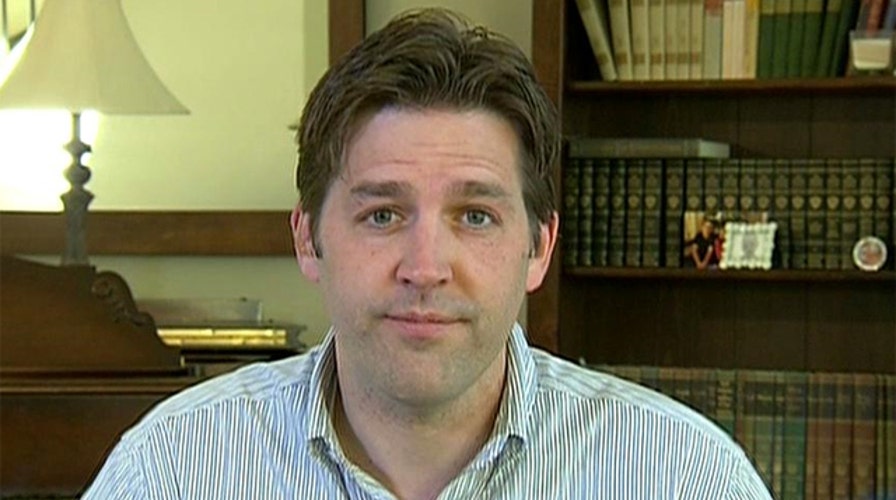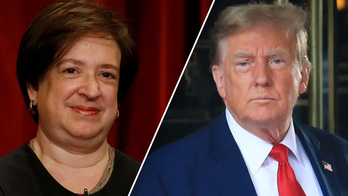The Tea Party movement would like to make clear that reports of its death have been greatly exaggerated.
Victories this week by Tea Party-backed candidates in Nebraska and West Virginia Republican primaries are helping to reinvigorate the movement, which some had written off amid a difficult campaign season. But as its own members point out, whether the movement is winning primaries or not, it's hard to argue its small-government message has faded.
Famous, or infamous, Tea Party-aligned lawmakers in Congress continue to play a strong role in the direction of the party. Polls of conservatives consistently show figures like Sens. Rand Paul, R-Ky., and Ted Cruz, R-Texas, as political favorites in a hypothetical 2016 race. And it is those figures who keep the Republican Party something of an evolving force -- Paul arguably made drones a bipartisan issue, and also filed a lawsuit this year against the administration over NSA surveillance, pushing the GOP to rethink the balance between security and privacy.
"Political pundits love to role-play as coroners, but they aren't very good at it," Tea Party Express Executive Director Taylor Budowich said after wins Tuesday night in Nebraska and West Virginia. "The mainstream media has been pushing the recycled 'Tea Party is Dead' headlines, but tonight's results show how again they've got it wrong. What these pundits don't understand is ... the broad appeal of the Tea Party's message of fiscal responsibility and economic growth."
In Nebraska, the primary victory by Republican Senate candidate Ben Sasse should help his party in November retain the open seat -- he is immediately considered the favorite for the seat held by retiring GOP Sen. Mike Johanns.
In West Virginia, former Maryland GOP chairman Alex Mooney won the Republican primary with spending help from such outside groups as the Madison Fund, the Senate Conservatives Fund and Tea Party Express.
The Tea Party is optimistic about winning both general election races -- with Mooney's 2nd Congressional District being a Republican stronghold and Sasse, a former Bush administration official, rebuffing the kind of fringe-candidate label that dogged some unsuccessful Tea Party candidates in 2012.
In addition, Tea Party leaders are touting the narrow victory Tuesday by Nebraska GOP Rep. Lee Terry for a House seat he is expected to keep and Florida businessman Curt Clawson's victory last month in a special election for the House seat left by Republican Trey Radel.
Still, it is becoming clear this year that the Tea Party will struggle to repeat its past record of ousting high-profile Republican incumbents in the primaries.
Hopes in the movement are fading that Kentucky businessman Matt Bevin will knock off Senate Minority Leader Mitch McConnell next Tuesday and that Mississippi state Sen. Chris McDaniel will upset U.S. Sen. Thad Cochran, first elected to Congress in 1973.
Also last week, its preferred candidate, libertarian-leaning physician Greg Brannon, lost to establishment candidate and state House speaker Thom Tillis in a North Carolina Senate primary.
That loss made Tuesday's victories all the more important as the primary season kicks into full swing.
With the help of national groups like Tea Party Express, the 42-year-old McDaniel is trying to portray himself as a Washington outsider in his race against Cochran. However, recent polls show Cochran, who remains popular in part for the billions in federal dollars he has brought home, holds a double-digit lead with the June 3 primary just weeks away.
On Wednesday, the Tea Party Patriots Citizens Fund tried to bring the energy from the Mooney and Sasse wins into the race.
"Cochran says he doesn't even know what the Tea Party is," group Chairman Jenny Beth Martin said in a fundraising email to supporters. "McDaniel needs more help on the ground. We need the funds to recruit more volunteers to get them to Mississippi."
Some in the so-called GOP establishment have been vocal about their desire to keep untested Tea Party candidates out of the November elections. Republicans are looking for candidates with enough mainstream appeal to help them win a net six Senate races in November to take control of the upper chamber.
McConnell and other GOP candidates -- including Idaho Rep. Mike Simpson who next Tuesday is defending against a Tea Party primary challenge -- also have deep-pocketed, outside support from such groups as the U.S. Chamber of Commerce.
In January, the Chamber vowed to back "pro-business" candidates against Tea Party-style opponents -- largely in response to conservative lawmakers fueling last year's partial government shutdown fight.
"In 2014, the chamber will work to protect and expand a pro-business majority in the House and advance our position and our influence in the Senate," said chamber President and CEO Tom Donohue. "We will support candidates who want to work within the legislative process."
To be sure, the Tea Party groups behind the 2010 wave election that helped Republicans take control of the House have also backed GOP candidates not quite ready for prime time -- including Senate candidate Sharron Angle, who unsuccessfully challenged Harry Reid in Nevada, and Richard Mourdock, whose statements on abortion and rape essentially scuttled his bid in 2012.
Still, national Tea Party groups sounded confident this week that they can win races in the fall. And, in a surprising move that signals flexibility and perhaps political pragmatism, Tea Party Express co-founder Sal Russo also endorsed immigration reform that would include a path to legal status for an estimated 11.5 million illegal immigrants.
Conservatives and Tea Party-backed House members have largely blocked such legislation, but Russo wrote in an op-ed piece for the newspaper Roll Call that an immigration overhaul should not be just the domain of "liberal do-gooder reformers."





